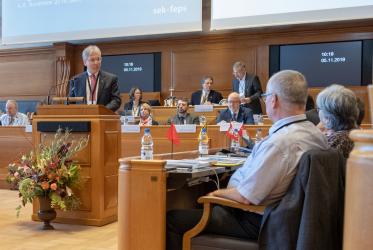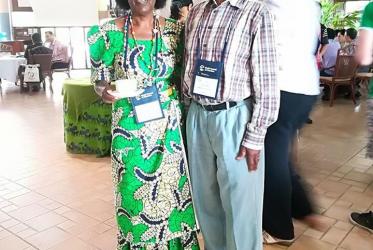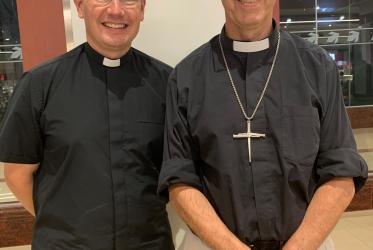Displaying 81 - 100 of 331
Churches should use their voice on climate change
26 February 2020
Tveit “Continue to be the light and the salt in this society”
08 November 2019
Climate emergency: faith-based groups pledge to amplify prophetic voice
25 September 2019
New Anglican director of unity sees encouraging signs
24 September 2019












